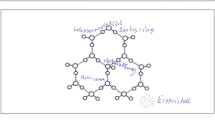Abstract
Under some conditions, learning is improved by using a dual mode presentation involving for example, visual diagrams and auditory, rather than written text (modality effect). Under other conditions, learning is improved by asking learners to imagine rather than study instructional material (imagination effect). Both effects have been explained using cognitive load theory. This paper investigates interactions between the modality and imagination effects. It was hypothesized that the imagination effect would be facilitated when accompanied by audio/visual instructions compared to visual only instructions. Experiment 1 provided evidence to suggest that for the materials used, audio/visual instructions were required to obtain an imagination effect. Experiment 2 through verbal protocols aimed to investigate the cognitive mechanisms required when studying and imagining and found that learners who studied tended to engage in search while learners who imagined focused on entities and relations that needed to be learned.
Similar content being viewed by others
References
A. Baddeley (1992) ArticleTitleWorking memory Science 255 556–559
R. Brünken J. Plass D. Leutner (2004) ArticleTitleAssessment of cognitive load in multimedia learning with dual-task methodology: Auditory load and modality effects Instructional Science 32 115–132 Occurrence Handle10.1023/B:TRUC.0000021812.96911.c5
R. Brünken S. Steinbacher J.L. Plass D. Leutner (2002) ArticleTitleAssessment of cognitive load in multimedia learning using dual-task methodology Experimental Psychology 49 1–12 Occurrence Handle10.1027//1618-3169.49.2.109
R. Clark F. Nguyen J. Sweller (2006) Efficiency in learning: evidence-based guidelines to manage cognitive load Pfeiffer San Fransisco
G. Cooper J. Sweller (1987) ArticleTitleEffects of schema acquisition and rule automation on␣mathematical problem solving transfer Journal of Educational Psychology 79 347–362 Occurrence Handle10.1037/0022-0663.79.4.347
G. Cooper S. Tindall-Ford P. Chandler J. Sweller (2001) ArticleTitleLearning by imagining Journal of Experimental Psychology: Applied 7 68–82 Occurrence Handle10.1037/1076-898X.7.1.68
J.E. Driskell C. Copper A. Moran (1994) ArticleTitleDoes mental practice enhance performance? Journal of Applied Psychology 7 481–492 Occurrence Handle10.1037/0021-9010.79.4.481
K.A. Ericsson W. Kintsch (1995) ArticleTitleLong-term working memory Psychological Review 10 211–245 Occurrence Handle10.1037/0033-295X.102.2.211
K.A. Ericsson H.A. Simon (1993) Protocol analysis: Verbal reports as data MIT Press Cambridge, Mass
J.L. Etnier D.M. Landers (1996) ArticleTitleThe influence of procedural variables on the efficacy of mental practice The Sport Psychologist 10 48–57
P. Ginns P. Chandler J. Sweller (2003) ArticleTitleWhen imagining information is effective Contemporary Educational Psychology 28 229–251 Occurrence Handle10.1016/S0361-476X(02)00016-4
S. Kalyuga P. Ayres P. Chandler J. Sweller (2003) ArticleTitleThe expertise reversal effect Educational Psychologist 38 23–31 Occurrence Handle10.1207/S15326985EP3801_4
S. Kalyuga P. Chandler J. Sweller (1998) ArticleTitleLevels of expertise and instructional design Human Factors 40 1–17
S. Kalyuga P. Chandler J. Sweller (2000) ArticleTitleIncorporating learner experience into the design of multimedia instruction Journal of Educational Psychology 92 126–136 Occurrence Handle10.1037/0022-0663.92.1.126
W. Leahy J. Sweller (2005) ArticleTitleInteractions among the imagination, expertise reversal and element interactivity effects Journal of Experimental Psychology: Applied 11 266–276 Occurrence Handle10.1037/1076-898X.11.4.266
R. Low J. Sweller (2005) The modality principle R.E. Mayer (Eds) Cambridge handbook of multimedia learning Cambridge University Press New York 147–158
R. Mayer (2005) Cognitive theory of multimedia learning R.E. Mayer (Eds) Cambridge handbook of multimedia learning Cambridge University Press New York 31–48
R. Mayer R. Moreno (2003) ArticleTitleNine ways to reduce cognitive load in multimedia learning Educational Psychologist 38 43–52 Occurrence Handle10.1207/S15326985EP3801_6
G.A. Miller (1956) ArticleTitleThe magical number of seven, plus or minus two: Some limits on our capacity for processing information Psychological Review 63 81–97 Occurrence Handle10.1037/h0043158
R. Moreno R.E. Mayer (1998) ArticleTitleA split-attention effect in multimedia learning: Evidence for dual-processing systems in working memory Journal of Educational Psychology 90 312–320 Occurrence Handle10.1037/0022-0663.90.2.312
S.Y. Mousavi R. Low J. Sweller (1995) ArticleTitleReducing cognitive load by mixing auditory and visual presentation modes Journal of Educational Psychology 87 319–334 Occurrence Handle10.1037/0022-0663.87.2.319
A. Paivio (1986) Mental representations: a dual coding approach Oxford University Press Oxford, England
C.G. Penney (1989) ArticleTitleModality effects and the structure of short term verbal memory Memory and Cognition 17 398–422
L.R. Peterson M. Peterson (1959) ArticleTitleShort term retention of individual items Journal of Experimental Psychology 58 193–198 Occurrence Handle10.1037/h0049234
E.I. Rawlings I.L. Rawlings (1974) ArticleTitleRotary pursuit tracking following mental rehearsal as a function of voluntary control of visual imagery Perceptual and MotorSkills 38 302–309
K. Romero L. Silvestri (1990) ArticleTitleThe role of mental practice in the acquisition and performance of motor skills Journal of Instructional Psychology 17 218–221
M. Shick (1970) ArticleTitleEffects of mental practice on selected volleyball skills for college women Research Quarterly 41 88–94
P.R. Surburg (1968) ArticleTitleAudio, visual and audio-visual instruction with mental practice in developing the forehand tennis drive Research Quarterly 39 728–734
J. Sweller (1999) Instructional design in technical areas ACER Press Victoria, Australia
J. Sweller (2003) Evolution of human cognitive architecture B. Ross (Eds) The psychology of learning and motivation Academic Press San Diego 215–266
J. Sweller (2004) ArticleTitleInstructional design consequences of an analogy between evolution by natural selection and human cognitive architecture Instructional Science 32 9–31 Occurrence Handle10.1023/B:TRUC.0000021808.72598.4d
J. Sweller (2005) Implications of cognitive load theory for multimedia learning R.E. Mayer (Eds) Cambridge handbook of multimedia learning Cambridge University Press New York 19–30
J. Sweller P. Chandler P. Tierney M. Cooper (1990) ArticleTitleCognitive load as a factor in the structuring of technical material Journal of Experimental Psychology: General 119 176–192 Occurrence Handle10.1037/0096-3445.119.2.176
J. Sweller G. Cooper (1985) ArticleTitleThe use of worked examples as a substitute for problem solving in learning algebra Cognition and Instruction 2 58–89 Occurrence Handle10.1207/s1532690xci0201_3
J. Sweller J. Merrienboer Particlevan F. Paas (1998) ArticleTitleCognitive architecture and instructional design Educational Psychology Review 10 251–296 Occurrence Handle10.1023/A:1022193728205
H. Tabbers R. Martens J. Merriënboer ParticleVan (2004) ArticleTitleMultimedia instructions and cognitive load theory: Effects of modality and cueing British Journal of Educational Psychology 74 71–81 Occurrence Handle10.1348/000709904322848824
S. Tindall-Ford P. Chandler J. Sweller (1997) ArticleTitleWhen two sensory modes are better than one Journal of Experimental Psychology: Applied 3 257–287 Occurrence Handle10.1037/1076-898X.3.4.257
Author information
Authors and Affiliations
Corresponding author
Additional information
in final form: 8 December 2005
Rights and permissions
About this article
Cite this article
Tindall-Ford, S., Sweller, J. Altering the Modality of Instructions to Facilitate Imagination: Interactions between the Modality and Imagination Effects. Instr Sci 34, 343–365 (2006). https://doi.org/10.1007/s11251-005-6075-5
Received:
Accepted:
Issue Date:
DOI: https://doi.org/10.1007/s11251-005-6075-5




